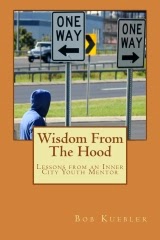Your lesson took hours to plan as you painstakingly crafted each detail to maximize its teaching potential. You eagerly anticipate the moment you'd deliver your masterpiece to a captivated audience of young scholars. The students trickle into your classroom like a stream seeping down a mountainside in late Summer. Patiently, eagerly you wait for them to settle into their seats.
Suddenly on the horizon of their emotions, a storm cloud appears. Pat Hetic* saunters into the classroom just as the bell rings. His slumped shoulders, gruff demeanor and tear stained face give rise to an emotional volcano about to erupt. "I hate this school!" He screams and slams his books down on his desk. Your perfectly planned lesson wasn't designed to withstand the lava flow of Pat Hetic's emotional eruption.
Condes Cending* gives her loud opinion regarding Pat's immaturity. "That creep will never grow up." She spews her words in a venomous verbal judgement. Pat's friends glare at her and raise their voices in reply, their words are tipped with barbs of negativity. "Leave him alone, he's having a bad day! Besides you're no better than he is!" Soon, the serenity you had envisioned for your lesson has percolated into a waterfall cascading into confusion. Your painstakingly crafted lesson left no room for volcanic eruptions.
Discombobulated might be a good description of your own emotional state as you grapple with the storm that's escalating with each verbal jab. The most basic definitions for discombobulate include words like: "to throw into confusion," "to frustrate," It's a scenario that is played out almost everyday in classrooms across the world. As a Teacher you understand the ebb and flow of emotional management in the classroom. If you haven't figured out how to teach amidst the storms of adolescent volatility, here are a few secrets for you:
Thanks for your time.
Go do something nice for somebody.
*Disclaimer
Pat Hetic (pathetic) and Condes Cending (condescending) are fictitious student names.
Any resemblance to actual students, living or dead,
or actual events in your classroom is purely coincidental.
Bob Kuebler
Suddenly on the horizon of their emotions, a storm cloud appears. Pat Hetic* saunters into the classroom just as the bell rings. His slumped shoulders, gruff demeanor and tear stained face give rise to an emotional volcano about to erupt. "I hate this school!" He screams and slams his books down on his desk. Your perfectly planned lesson wasn't designed to withstand the lava flow of Pat Hetic's emotional eruption.
Condes Cending* gives her loud opinion regarding Pat's immaturity. "That creep will never grow up." She spews her words in a venomous verbal judgement. Pat's friends glare at her and raise their voices in reply, their words are tipped with barbs of negativity. "Leave him alone, he's having a bad day! Besides you're no better than he is!" Soon, the serenity you had envisioned for your lesson has percolated into a waterfall cascading into confusion. Your painstakingly crafted lesson left no room for volcanic eruptions.
Discombobulated might be a good description of your own emotional state as you grapple with the storm that's escalating with each verbal jab. The most basic definitions for discombobulate include words like: "to throw into confusion," "to frustrate," It's a scenario that is played out almost everyday in classrooms across the world. As a Teacher you understand the ebb and flow of emotional management in the classroom. If you haven't figured out how to teach amidst the storms of adolescent volatility, here are a few secrets for you:
It's a simple formula of "D=O" or "Discombobulation = Opportunity." There must be conflict for there to be growth. The Heart Farmer has to have broken ground before he can plant seeds of love for young hearts to grow. The muscle must tear before it becomes stronger. The butterfly must struggle to be able to fly. The diamond is made from stress and pressure. The pearl is made from an irritant.
- Every interruption is an opportunity. There is value and a lesson in every emotional state. If you have built trust with your students, you'll probably face more storms than the miserable coot who only teaches for a paycheck. Knowing your students and giving them your presence allows you to forecast the emotional weather patterns in your class.
- "Teacher know thy student." Make it a point to keep a written record of the interests, talents and challenges in a child's life. By investing time into forming a personal relationship with each student, you'll open the door to their heart. You will know when something is wrong and it's usually related to a challenge that child has yet to overcome. Children want to know you care and then they allow you to speak into their hearts.
- Recognize manipulating behaviors and set boundaries. Compassion and empathy are not to be confused with complacency and fear. Be confident in your ability to make a child feel valued as you set behavioral expectations for your classroom.
"Discombobulants are touch-points
that calm the storm in a child's heart."
Thanks for your time.
Go do something nice for somebody.
*Disclaimer
Pat Hetic (pathetic) and Condes Cending (condescending) are fictitious student names.
Any resemblance to actual students, living or dead,
or actual events in your classroom is purely coincidental.
Bob Kuebler
Founder / Mentor
Mentor Force is an organization of initiators.
We help young people who are at risk of leading impoverished and violent lives.
We teach teachers, mentors, coaches, parents and youth leaders how to build healthy relationships that make young people feel valued.
Mentor Force is an organization of initiators.
We help young people who are at risk of leading impoverished and violent lives.
We teach teachers, mentors, coaches, parents and youth leaders how to build healthy relationships that make young people feel valued.
Our goal is to ensure that
every student has the benefit of being guided by a Mentor
If we can help you reach your potential as a
Mentoring organization please contact us: 716-830-8240
mentorforcebuffalo@gmail.com.
We are available for school
assemblies and educator conferences.









